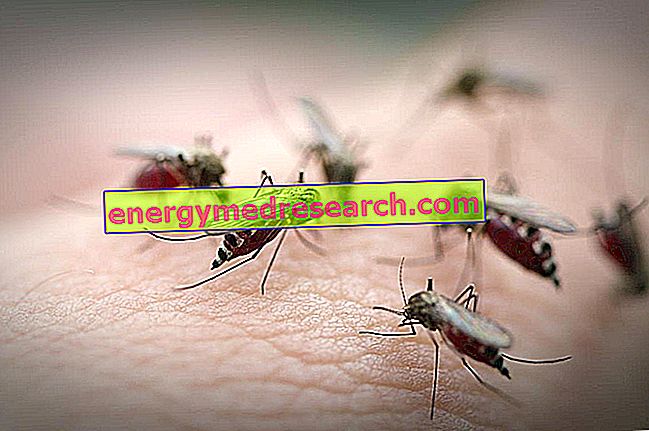
In humans, malaria is caused by four types of plasmodia: Plasmodium falciparum, P. vivax, P. malariae and P. ovale . These single-celled parasites are conveyed to humans by some species of mosquitoes belonging to the genus Anopheles : if the insect is infected by the plasmodium, by pricking the man, it represents the contagion vector .
From an ecological and evolutionary point of view, therefore, malaria is linked to the presence of water; so that the carrier mosquito can reproduce and survive in the environment, however, the temperature must not fall below 18 ° C. This also explains the seasonal variation that was observed in certain areas of the planet, where the infection is prevalent in hot periods (thanks to the greater efficiency of the cycle), while in winter it is rare.
Plasmodium falciparum is the main type of malaria and is the cause of death caused by the disease.



